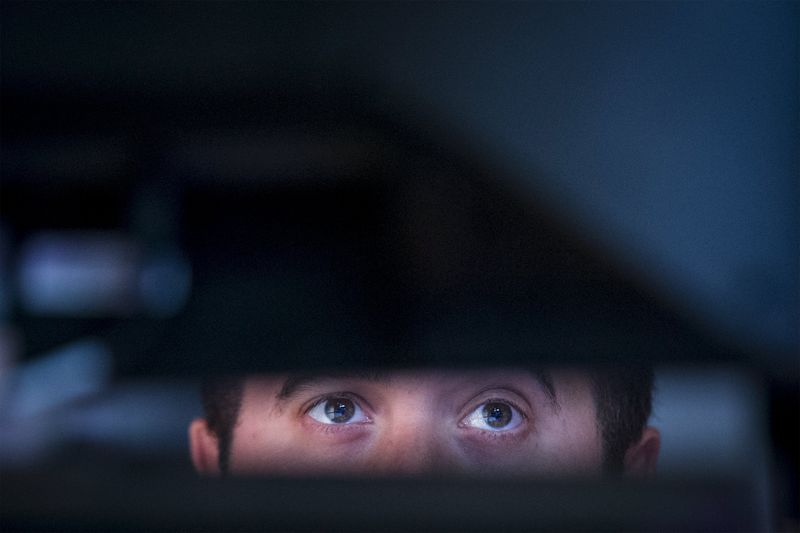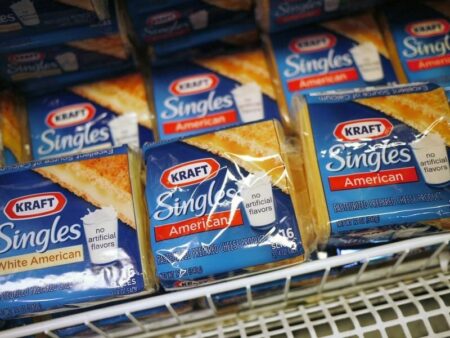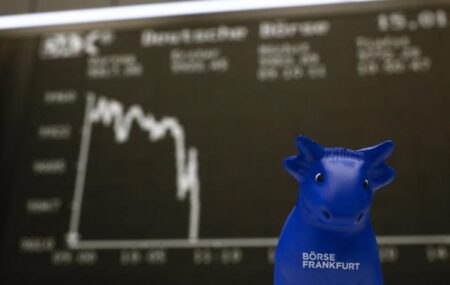By Jessica DiNapoli
NEW YORK (Reuters) – Trick-or-treaters hoping to collect handfuls of chocolate candy this Halloween might be facing a bit of a letdown.
U.S. confectionery companies are stocking store shelves with fewer Halloween chocolates and doubling down instead on cheaper gummies and licorice such as Mondelez (NASDAQ:)’s Sour Patch Kids and Hershey’s Twizzlers ghosts, according to market research firm Circana.
Prices on sugary non-chocolate sweets – though still cheaper than chocolate – are also up double digits, according to Circana.
The shift to gummies, licorice and flavored crèmes comes as chocolate makers face shrinking margins and slowing sales. Consumers have been curbing their cravings for costly chocolate, and the candy companies have faced a double-whammy on their own costs for the treat, first from supply chain snarls during the COVID pandemic and now from a cocoa bean shortage.
“Chocolate candy, there’s just not as many items per retailer on shelf,” said Dan Sadler, principal of client insights at Circana, who focuses on confection. “We’re seeing double-digit increases in non-chocolate items.”
Candy companies took a similar approach for Easter, unveiling new products lighter on cocoa. But for Reese’s cup maker Hershey, a top U.S. chocolate maker, the sales results were disappointing, with the company’s category for the spring holiday declining, executives told investors on conference calls. They pegged it on an earlier Easter and a shorter selling season.
A spokesperson for Oreo maker Mondelez said that shoppers for Halloween are looking for more limited editions and special flavors, such as its Sour Patch Kids’ apple harvest and cherry varieties. Mondelez does not have a major U.S. chocolate brand.
Privately-held Mars did not reply to a request for comment.
Hershey’s key new products for Halloween are its Reese’s Werewolf Tracks, which feature a vanilla crème top instead of milk chocolate, and its KitKat Ghost Toast with a cinnamon toast flavored crème, a spokesperson for the company said.
The Hershey, Pennsylvania-based company sees non-chocolate candy as having potential for higher growth, the spokesperson said. Last month Hershey introduced two new non-chocolate candies, Jolly Rancher Ropes and Shaq-a-Licious gummies, which are inspired by the former U.S. basketball star Shaquille O’Neal.
Hershey plans to introduce more sweets in the next several months, the spokesperson said.
To be sure, the spokesperson added that chocolate makes up a bigger part of Halloween sales across the candy category compared to everyday purchases.
‘SUMMERWEEN’ AND ‘AUGTOBER’
Confectioners and retailers like grocer Kroger (NYSE:) started selling Halloween candy earlier than ever this year, indicating the importance of the holiday to their sales figures, and fueling decorating and party trends like “Summerween” and “Augtober.”
Halloween was the biggest holiday for candy sales last year, according to the National Confectioners Association.
Candy companies are increasingly relying on holidays and special occasions like birthdays for sales growth as shoppers find everyday chocolate purchases unaffordable.
Kroger had Halloween candy for sale as soon as students were back to school, the earliest ever, a spokesperson said. The grocer has also seen higher demand for non-chocolate candy, the spokesperson said.
Hershey started selling its Reese’s peanut butter pumpkins online in July for the first time.
Hershey expects its Halloween sales will grow in line with total company sales for the year, the spokesperson said. Hershey cut back its annual sales growth expectations to 2%.
There is not only less chocolate candy for Halloween in stores, but it is also more expensive. Prices on seasonal chocolate candy have increased by as much as 7.5% from last year, Sadler said.
Chocolate makers were exposed to higher cocoa costs when planning for this year’s holiday, said David Branch, a sector manager at Wells Fargo Agri-Food Institute, leading to higher prices at retailers. Chocolate companies typically cover volatile commodity costs like cocoa with hedges protecting them for six months to a year.
Average unit prices on chocolate are up more than 40% from 2020, according to data from NielsenIQ, outpacing broader food inflation, which has started to moderate.
Hershey announced more price hikes this summer to cover the rising cost of cocoa. The Hershey spokesperson said that those increases did not affect Halloween candy for sale now.
At Target, a 120-piece, roughly 46-ounce bag of Mars’ Milky Ways, Snickers, M&Ms and Twix chocolates is $19.99.
Candy companies are hiking prices on candies without chocolate by double digits, Sadler said.
“Non-chocolate is catching up,” Sadler said. “When you look at the price per pound of non-chocolate versus chocolate, it’s still a value.”
Read the full article here
















